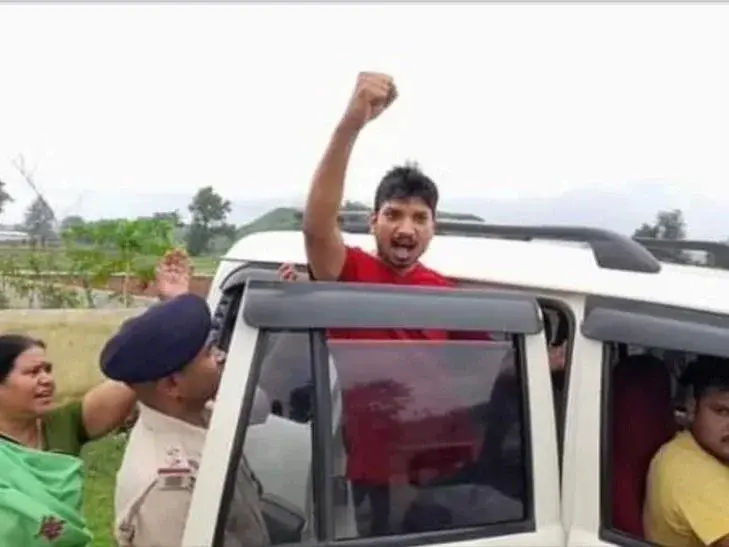
Rupesh Kumar Singh: “I Won’t Write Your Lies as Truth”
International Solidarity for Academic Freedom in India (InSAF India) has recently reported on the case of the imprisoned journalist Rupesh Kumar Singh. He is a journalist from Jharkhand, India. He completed 1,200 days behind bars during the trial at the end of October 2025. Rupesh has been accused in five cases, all of which link him to “Maoist activity”, and alongside other criminal laws, implicate him under the draconian anti-terrorist law, the Unlawful Activities (Prevention) Act, 1967 (UAPA). He is one of the many dissenting voices, democratic rights activists, etc., who have been accused under the charges of being Maoist. He has already spent three years in prison awaiting the completion of trials.
He has worked as a journalist since 2013 and writes in Hindi language. He focused on the oppression faced by the marginalized in Jharkhand and Bihar and their struggle against it, especially the oppression and struggle of the Adivasi people. He is a well-known journalist who collaborates with many media outlets and has been invited to several media platforms as an expert.
His first arrest was on 4 June 2019, when he was illegally abducted while traveling from Ramgarh to Aurangabad with two other people. For close to two days, the three of them were kept in illegal custody by the Bihar Police. On 6 June, the police officially arrested them on charges of “Maoist activity” and showed confiscated explosives from the vehicle in which they were traveling. Rupesh and the other accused denied such claims, stating that the police planted those explosives. They were finally released on December 2019. While imprisoned, Rupesh wrote a jail diary, which was published in 2020 as Kaidkhaane ka Aaina, denouncing further oppression against the oppressed in the prison, as well as other injustices. During these years he and his family were surveilled through Pegasus spyware, illegally planted on their devices.
He was arrested again on 17 July 2022, after a reportage on the industrial pollution effects on the poor peasantry in the Giridih district, south Jharkhand. 10 months later, while he was in prison, his home was raided a second time by India’s National Investigation Agency. During this raid, his spouse’s mobile phone was also confiscated, indicating the state’s attempts to falsely incriminate her as well. After his rearrest in 2022 in the Saraikela-Kharsawan case, his bail applications were denied, and this situation is still ongoing.
He has been transferred from one prison to another at least four times, facing harassment and threats by the prison officials in each case. He had no right to be present during his trials and his family and lawyers were deprived of visiting him. Rupesh’s health has deteriorated considerably over the last three years. Rupesh has developed multiple disorders including extremely high cholesterol and triglycerides, and severe pain in his back and legs. Even through this torture, Rupesh and his family keep resisting and battling this repressive case.

